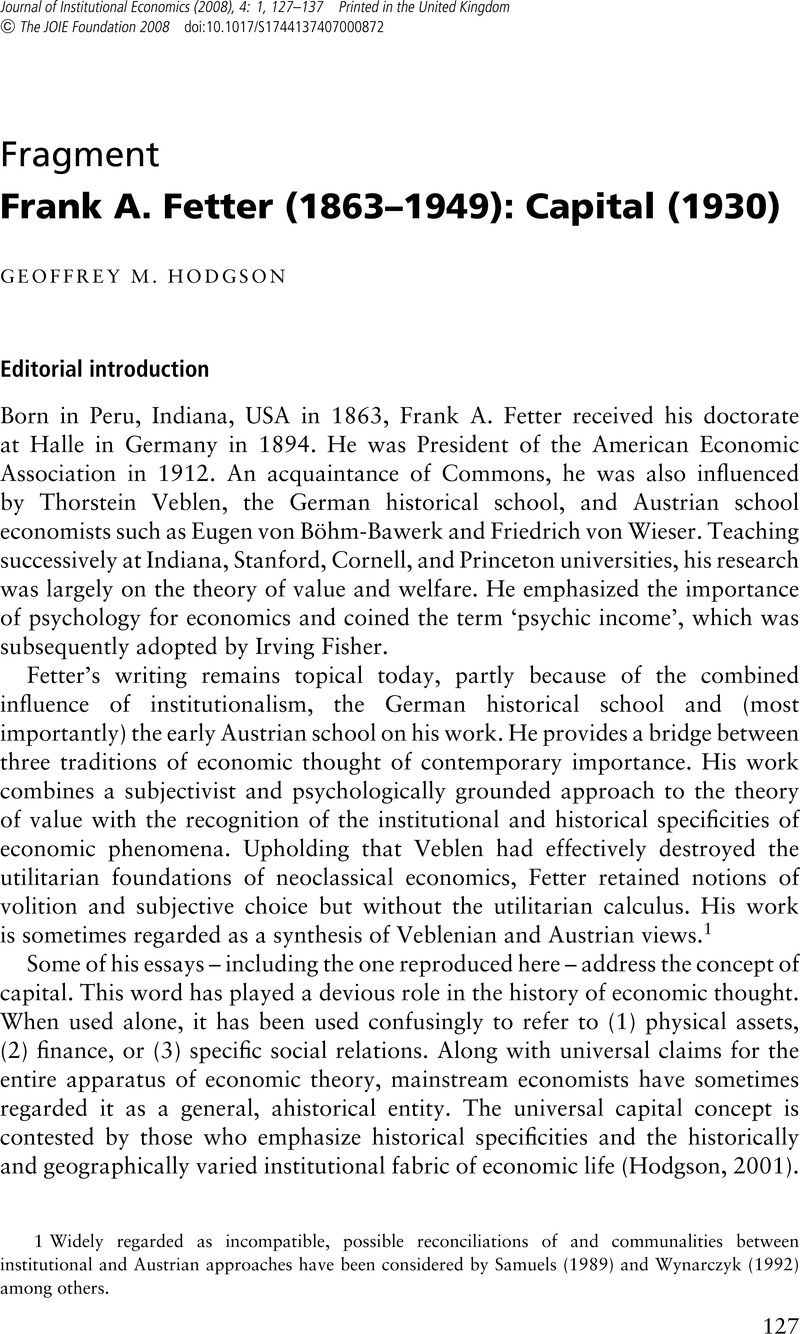Crossref Citations
This article has been cited by the following publications. This list is generated based on data provided by Crossref.
BRAUN, EDUARD
LEWIN, PETER
and
CACHANOSKY, NICOLÁS
2016.
Ludwig von Mises's approach to capital as a bridge between Austrian and institutional economics.
Journal of Institutional Economics,
Vol. 12,
Issue. 4,
p.
847.
Braun, Eduard
Lewin, Peter
and
Cachanosky, Nicolas
2016.
Ludwig Von Mises's Approach to Capital as a Bridge between Austrian and Institutional Economics.
SSRN Electronic Journal ,
Braun, Eduard
2020.
Carl Menger:Contribution to the Theory of Capital(1888), Section V.
Journal of Institutional Economics,
Vol. 16,
Issue. 4,
p.
557.



